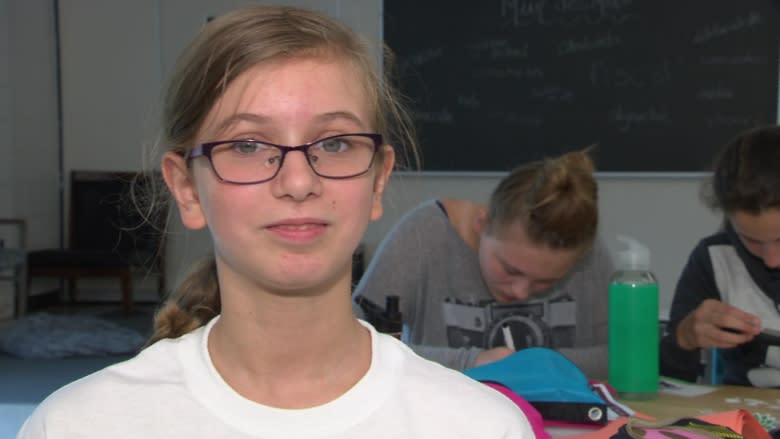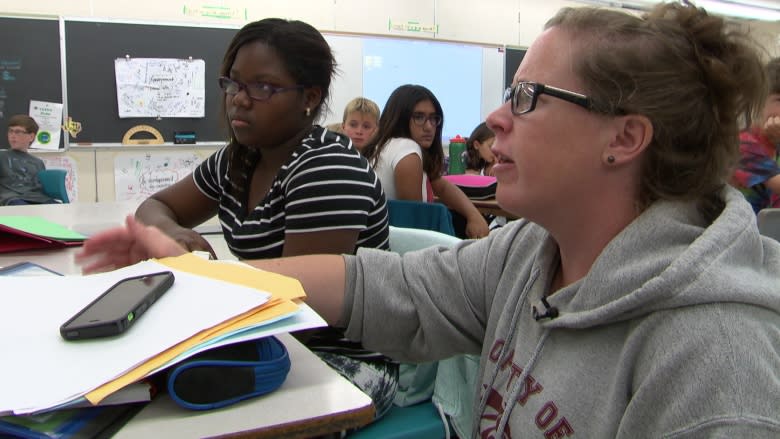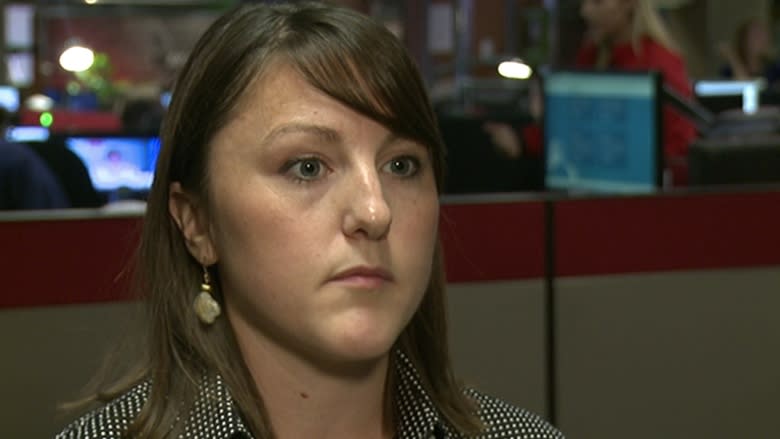Student Vote engages children in election campaigns to create life-long voters
Twelve-year-old Laura Kalab is years away from being able to vote, but she says she's ready now. She credits a national program called Student Vote for preparing her and thousands of children across the country to exercise their vote once they become eligible.
"Some people say, and I agree with this, if you don't vote, you don't have a right to complain," said Kalab, a Grade 7 student at D. Aubrey Moodie Intermediate School in Ottawa's Nepean neighbourhood.
"Because if you don't choose, you let others choose for you."
In the last federal election, thousands of Canadians between the ages of 18 and 24 just didn't make it to the polls. In fact, less than 40 per cent of young people voted, according to Elections Canada.
Listen to Julie Ireton catch up with students getting a crash course in democracy in the player below.
'Students are inquiring about the parties'
Teachers, including Allison Fuisz at D. Aubrey Moodie, think engaging kids like Laura early, long before they're 18, will be key to solving the problem.
"What's incredible that I've experienced over the past few weeks is students are inquiring about the parties and getting engaged by creating their own media campaigns. They are loving every bit of it," said Fuisz.
This year close to 7,000 schools across the country are participating in Student Vote in all 338 ridings. The program, run by CIVIX, a civic education charity, also runs a parallel election to the actual vote.
Students across the country will be researching, analyzing, campaigning and then voting for their local candidates during the week before the real election.
Drop voting age to 16, professor says
Amanda Clarke, a professor at the School of Public Policy and Administration at Carleton University who has been studying youth apathy when it comes to elections, said she likes what teachers across the country are up to.
"I think that's one of greatest ways that we can try to reverse this trend," said Clarke. "The idea being that hopefully when they leave school is they've built a propensity to see themselves as a voter."
Another initiative Clarke said needs more attention is dropping the voting age to 16, as has been done in Scotland. Voting at that age can become part of the high school curriculum, she said.
"There's a good chance that one act will follow that student through the rest of their life and they become a life-long voter," Clarke said.
Depending on the party, empowering the youth vote could be a game-changer.
Eric Grenier, CBC's poll analyst in the 2015 federal election, said the Liberals and New Democrats would benefit from a higher youth turnout.
"The Conservatives would be penalized the most. They poll about 10 points less among young Canadians than they do among other Canadians," said Grenier.
The tight race, along with the attention on social media, could see more young people at the polls this time around.




